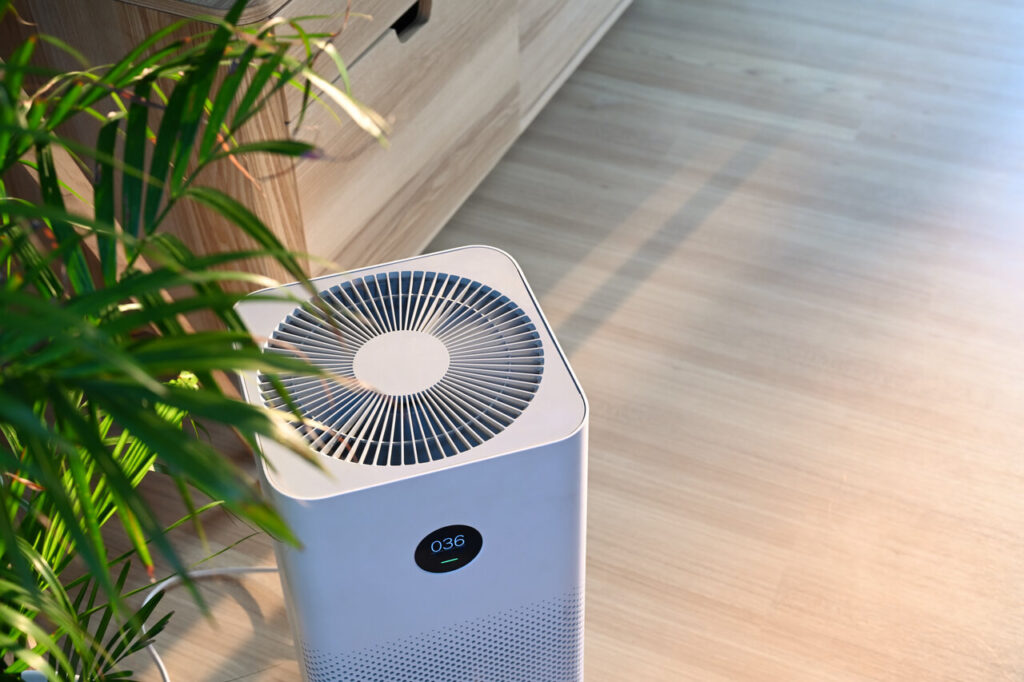Allergens are a common source of discomfort for many homeowners, triggering symptoms such as sneezing, sinus congestion, headaches, and shortness of breath. Indoor allergens, like dust mites, pet dander, mold spores, and pollen, can accumulate within your living spaces and negatively impact your health and well-being. To help you breathe easier and create a more comfortable home environment, we will explore effective strategies to manage indoor allergens, focusing on air filtration, ventilation, and humidity control.
Reducing allergens in your home requires a comprehensive approach, addressing not only the presence of allergens but also the conditions that promote their growth and buildup. Implementing proper air filtration systems, ensuring adequate ventilation, and controlling indoor humidity levels can significantly mitigate the presence of allergens and improve your overall indoor air quality. Our skilled professionals are equipped to help you assess and address your indoor allergen concerns, providing expert guidance and tailored solutions to create a healthier environment for you and your loved ones.
The Importance of Efficient Air Filtration in Managing Indoor Allergens
A crucial step toward reducing allergens in your home is selecting an effective air filtration system that can trap allergens and prevent them from circulating in your living spaces.
Choosing the Right Air Filter
When selecting an air filter for your home, it’s essential to consider its Minimum Efficiency Reporting Value (MERV) rating. Higher MERV-rated filters are designed to capture smaller particles, including common allergens like dust mites, pollen, and pet dander. Additionally, HEPA filters can offer even greater filtration efficiency, providing an excellent option for homeowners seeking maximum allergen reduction.
Regular Filter Maintenance
For your air filtration system to operate at peak efficiency, it is critical to replace your filters regularly. Over time, air filters accumulate dust and allergens, which can restrict airflow and compromise filtration performance. Our technicians can help you maintain your air filtration system, ensuring that it effectively reduces allergens in your home.
Ventilation Strategies for Improved Allergen Management
Proper ventilation plays a vital role in managing indoor allergens, as it helps to remove stale, allergen-filled air and replace it with fresh, clean air from the outdoors.
Natural Ventilation
Opening windows and doors can facilitate airflow in your home and help to disperse allergens. However, it’s essential to be mindful of outdoor allergen levels – on high pollen count days, for example, it might be more effective to rely on mechanical ventilation systems to manage indoor allergens.
Mechanical Ventilation Systems
Implementing mechanical ventilation systems like energy recovery ventilators (ERVs) or heat recovery ventilators (HRVs) can ensure consistent, controlled air exchange in your home. These systems effectively balance the removal of stale allergen-filled air with the introduction of fresh filtered air, contributing substantially to improved indoor air quality.
Controlling Indoor Humidity to Reduce Allergens
Maintaining an ideal indoor humidity level is another crucial factor in allergen management, as excessive moisture can promote mold growth and support the proliferation of dust mites.
Humidifiers and Dehumidifiers
Integrating humidity control devices like humidifiers and dehumidifiers into your home can help maintain a balanced indoor moisture level. Humidifiers add moisture to the air during dryer months, while dehumidifiers reduce humidity in damp conditions, both working together to create an unfavorable environment for allergens.
Proper Maintenance of Humidity Control Devices
Regular maintenance of humidity control devices is essential for their continued optimal performance. Cleaning the devices, replacing filters, and monitoring their functionality can ensure they remain effective in mitigating allergen-promoting conditions. Our professionals are available to help you maintain your humidity control devices and create a healthier indoor environment.
Ensuring a Clean Living Environment to Minimize Indoor Allergens
Maintaining a clean living space can significantly contribute to reducing the presence of allergens in your home. A combination of regular cleaning practices and professional services can help keep allergens at bay.
Regular Cleaning Practices
Regular cleaning practices, such as vacuuming, dusting, and washing bedding, can remove allergens that have settled on surfaces and in fabrics. Be sure to use a vacuum with a HEPA filter and damp cloths for dusting to avoid spreading allergens further throughout your living spaces.
Professional Cleaning Services
In addition to regular cleaning practices, it may be helpful to enlist the assistance of professional cleaning services for deep cleaning tasks, such as carpet cleaning, air duct cleaning, and upholstery cleaning. These services can help eliminate allergens that may have accumulated beyond reach and contribute to a healthier indoor environment.
Conclusion
Effectively managing indoor allergens and creating a more comfortable and healthier home environment requires a comprehensive approach, including efficient air filtration, proper ventilation, and humidity control. By implementing these strategies and maintaining a clean living space, you can minimize allergens in your home and protect the well-being of your family. Our knowledgeable professionals at Sprinter Total Indoor Comfort are prepared to help you assess your allergen concerns and provide expert guidance and support in implementing the necessary solutions. Contact our HVAC company in Rigby today to learn more about how we can help you breathe easier and create a more comfortable home.




